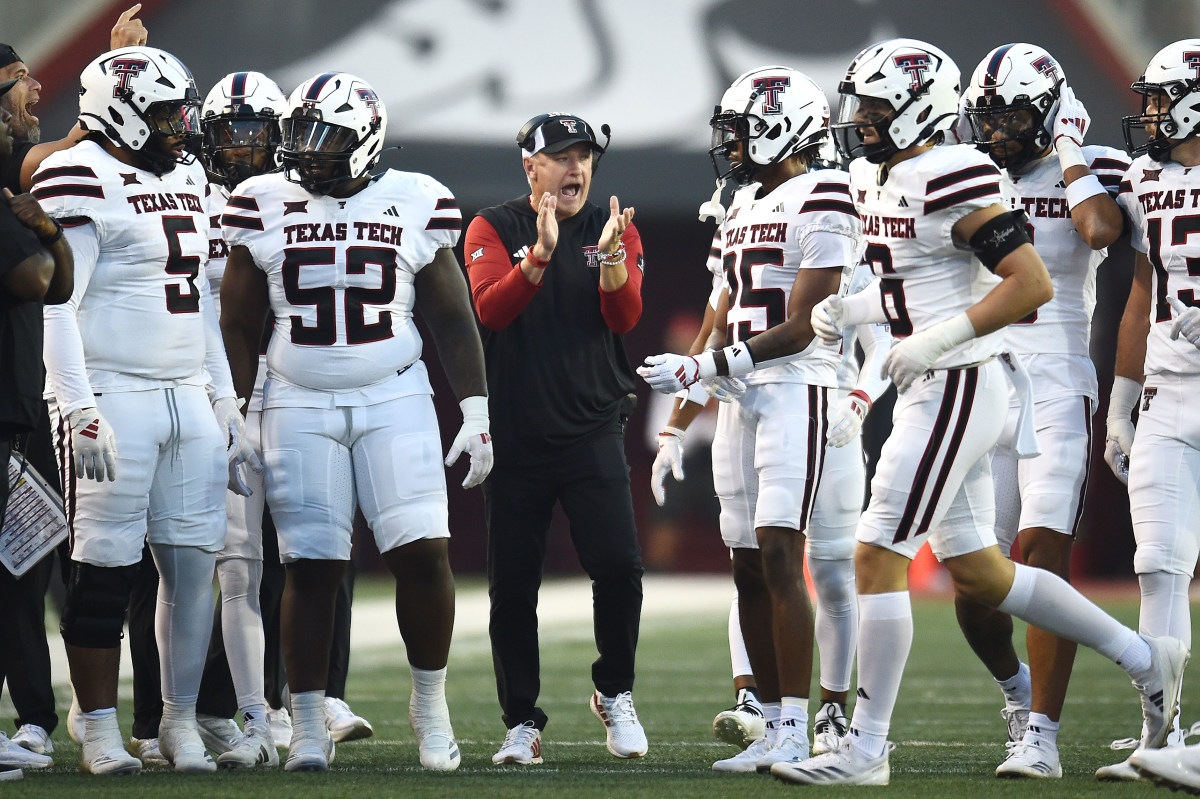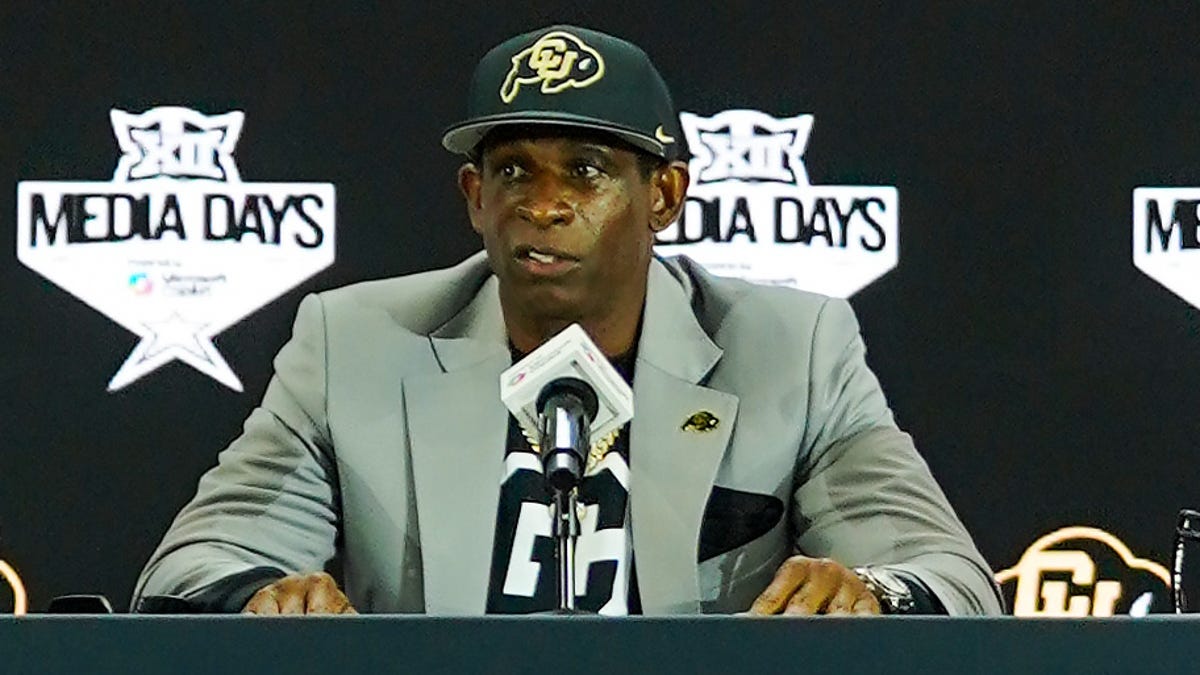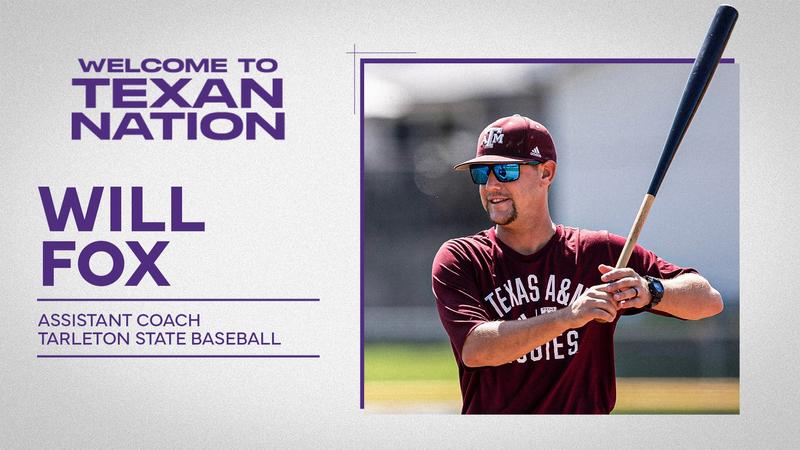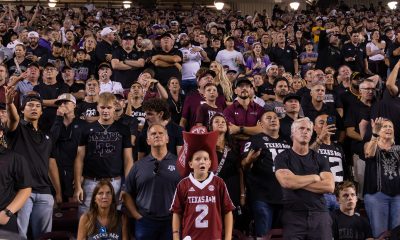
 AI-assisted summaryPower conferences are requiring member schools to sign a loyalty pledge regarding new NCAA player pay rules or face potential expulsion.The pledge mandates adherence to these rules despite state laws that may allow circumvention, and waives the right to sue the NCAA.Tennessee’s new law, designed to protect universities from lawsuits related to player pay, is at the center of this conflict.Tennessee aims to comply with the forthcoming NCAA system but seeks legal protection if the rules are challenged in court.A new Tennessee law triggered the power conferences of college sports into demanding member schools like the University of Tennessee and Vanderbilt to sign a loyalty pledge over new player pay rules or face possible expulsion.
AI-assisted summaryPower conferences are requiring member schools to sign a loyalty pledge regarding new NCAA player pay rules or face potential expulsion.The pledge mandates adherence to these rules despite state laws that may allow circumvention, and waives the right to sue the NCAA.Tennessee’s new law, designed to protect universities from lawsuits related to player pay, is at the center of this conflict.Tennessee aims to comply with the forthcoming NCAA system but seeks legal protection if the rules are challenged in court.A new Tennessee law triggered the power conferences of college sports into demanding member schools like the University of Tennessee and Vanderbilt to sign a loyalty pledge over new player pay rules or face possible expulsion.
Knox News confirmed the existence of the loyalty document through a source with direct knowledge of the situation. The source requested anonymity because those correspondence are between the conferences and member schools.
The document is being circulated by the ACC, Big 12, Big Ten and the SEC. It demands that member schools agree to follow new rules involving paying players despite state laws giving the freedom to circumvent the rules. And the pledge also requires schools to waive their right to sue the NCAA or conferences if they disagree with the implementation of those rules.
The document has not been finalized. But potential consequences of not signing it include expulsion from the conference or participation in playing games against other power conference schools.
The new Tennessee law applies to all four-year universities in the state, public and private. UT and Vanderbilt are in the SEC, one of four power conferences.
A clause in the law permits Vanderbilt and private universities to opt out of the protections of the state law in order to cooperate with the NCAA. Additionally, it appears that UT is guiding the approach of the law because of how it’s utilized lawmakers against the NCAA in the past.University of Memphis (American Athletic Conference), Middle Tennessee State (Conference USA) and other state universities are in mid-major conferences that likely won’t require a pledge to follow the new college sports player pay rules.For better or worse, this makes Tennessee the epicenter of another earthquake in college sports.![The Tennessee football team runs through the T before the start of an SEC conference game between UT and Alabama in Neyland Stadium on Saturday, Oct. 19, 2024.]() What University of Tennessee said about SEC threatExpulsion from the SEC seems inconceivable for UT, a charter member since 1932. But whether it’s a legitimate threat or a negotiating tactic remains to be seen.In a statement to Knox News, UT pledged to comply with the pending House settlement, which will create the new system for player pay, while acknowledging the need for the state law.
What University of Tennessee said about SEC threatExpulsion from the SEC seems inconceivable for UT, a charter member since 1932. But whether it’s a legitimate threat or a negotiating tactic remains to be seen.In a statement to Knox News, UT pledged to comply with the pending House settlement, which will create the new system for player pay, while acknowledging the need for the state law.
“The University of Tennessee has committed to following the House settlement if it is approved,” UT said in a statement. “That commitment has not changed. We appreciate the Tennessee General Assembly’s forethought in passing NIL legislation that provides future protections for student-athletes and institutions beyond the House settlement.”
Vanderbilt and the SEC did not immediately respond to a Knox News request for comment.
Threatening a loyalty pledge is a bold move by the NCAA and power conferences and, most certainly, in response to the new Tennessee law, which was signed by Gov. Bill Lee on May 1 and surfaced about two weeks later.
The law protects Tennessee universities from anticipated antitrust lawsuits by athletes and NIL collectives unhappy with the player-pay rules coming to college sports.
The new NCAA system will include a salary cap of direct school-to-player pay, roster limits, revenue sharing that challenges Title IX principles of publicly funded institutions and a clearinghouse that vets NIL contracts. It could help stabilize college sports, but lawsuits challenging those rules are expected.
If athletes, boosters or collectives sue, the new state law allows Tennessee universities to opt out of those college sports rules and shift liability toward the NCAA and conferences. It also prevents the NCAA from penalizing schools that circumvent those rules for purposes of following the law.
Only a federal law, a valid court order or antitrust exemption for college athletics can supersede Tennessee’s new law. That escape hatch for Tennessee schools sounded alarms across the college sports landscape.
How Tennessee could disrupt the new system in college sports
Opinions about Tennessee’s approach vary around college sports.
About a dozen states have enacted similar laws in the everchanging arms race of paying college athletes with few restrictions. But Tennessee’s law is believed to be the strongest and most evasive to NCAA rules and the conditions of the pending House settlement.
The timing of Tennessee’s new law is also problematic.
A new NCAA system for paying athletes could begin as early as July 1, pending the multi-billion-dollar House settlement, which resolves three federal antitrust lawsuits against the NCAA and four power conferences (ACC, Big Ten, Big 12, SEC).
That settlement could come any day now. There’s growing skepticism that it will solve the legal and structural problems in college sports, although some are cautiously optimistic that it’ll at least achieve some progress.
Opponents of the new state law believe Tennessee is nixing an effective agreement days before it’s signed by a federal judge. But proponents of the state law believe Tennessee is being proactive by keeping its legal options in anticipation of a system it believes will fail.
The most straightforward take of the situation is that Tennessee is protecting its own interests ahead of the SEC or college sports. Whether that’s a wise move or heavy handed is debatable, but it certainly got the attention of college sports leaders.
Here’s why UT wants state law for protection
Tennessee schools intend to comply with the system prescribed in the House settlement, but that plan remains hazy. UT, specifically, wants legal cover if the new rules violate antitrust law.
Here are examples of what UT fears if it’s not given liability protection by the state law.
- A new clearinghouse will determine if NIL deals are legitimate and of fair market value. Legally, that appears to be a difficult standard to define. If an athlete or collective sues because an NIL deal is declined, UT wants the flexibility to approve the contract independent of NCAA rules or at least opt out of the system to avoid a lawsuit.
- Lawsuits on numerous antitrust grounds are anticipated after the House settlement is approved. The NCAA, power conferences and schools could be sued. There’s no indication whether those suits would be successful. But UT doesn’t want to be among the defendants, and the state law says Tennessee schools don’t have to follow anticompetitive NCAA rules.
- If damages are awarded in antitrust lawsuits, the state law says that Tennessee schools can’t be held responsible for paying them. Instead, the NCAA would be liable.
- UT wants to avoid punishment from the NCAA if it opts out of rules that it finds to violate antitrust laws. If that occurs, the state law protects UT from NCAA sanctions. Notably, UT football is already on probation until July 13, 2028, as a result of the Jeremy Pruitt recruiting scandal.
![]()
Could Tennessee face another court battle?
Some college sports stakeholders believe Tennessee isn’t being a team player. But UT has reasons to distance itself from the NCAA in future lawsuits, and it has a good track record against the governing body.
They faced off in federal court in 2024 after the state of Tennessee, on behalf of UT, sued the NCAA to loosen its stringent rules over NIL benefits. UT won that battle.
On Jan. 31, 2025, the NCAA and a coalition of states led by Tennessee reached a settlement that protects student-athletes’ NIL rights during the recruiting process and prohibits the NCAA from bringing back its NIL recruiting ban.
And in 2023, Tennessee Attorney General Jonathan Skrmetti threatened to sue the NCAA if it gave the UT football team a postseason ban in the Pruitt recruiting scandal. UT also won that battle, as the NCAA relented from issuing a postseason ban.
The bad blood between UT and the NCAA can’t be ignored as a backdrop to this state law. And don’t be surprised if Skrmetti or Tennessee lawmakers get involved again if this situation escalates.
Adam Sparks is the Tennessee football beat reporter. Emailadam.sparks@knoxnews.com. X, formerly known as Twitter@AdamSparks. Support strong local journalism by subscribing at knoxnews.com/subscribe.
Get the latest news and insight on SEC football by subscribing to the SEC Unfiltered newsletter, delivered straight to your inbox.
1




 AI-assisted summaryPower conferences are requiring member schools to sign a loyalty pledge regarding new NCAA player pay rules or face potential expulsion.The pledge mandates adherence to these rules despite state laws that may allow circumvention, and waives the right to sue the NCAA.Tennessee’s new law, designed to protect universities from lawsuits related to player pay, is at the center of this conflict.Tennessee aims to comply with the forthcoming NCAA system but seeks legal protection if the rules are challenged in court.A new Tennessee law triggered the power conferences of college sports into demanding member schools like the
AI-assisted summaryPower conferences are requiring member schools to sign a loyalty pledge regarding new NCAA player pay rules or face potential expulsion.The pledge mandates adherence to these rules despite state laws that may allow circumvention, and waives the right to sue the NCAA.Tennessee’s new law, designed to protect universities from lawsuits related to player pay, is at the center of this conflict.Tennessee aims to comply with the forthcoming NCAA system but seeks legal protection if the rules are challenged in court.A new Tennessee law triggered the power conferences of college sports into demanding member schools like the  What University of Tennessee said about SEC threatExpulsion from the SEC seems inconceivable for UT, a charter member since 1932. But whether it’s a legitimate threat or a negotiating tactic remains to be seen.In a statement to Knox News, UT pledged to comply with the pending House settlement, which will create the new system for player pay, while acknowledging the need for the state law.
What University of Tennessee said about SEC threatExpulsion from the SEC seems inconceivable for UT, a charter member since 1932. But whether it’s a legitimate threat or a negotiating tactic remains to be seen.In a statement to Knox News, UT pledged to comply with the pending House settlement, which will create the new system for player pay, while acknowledging the need for the state law.


























































